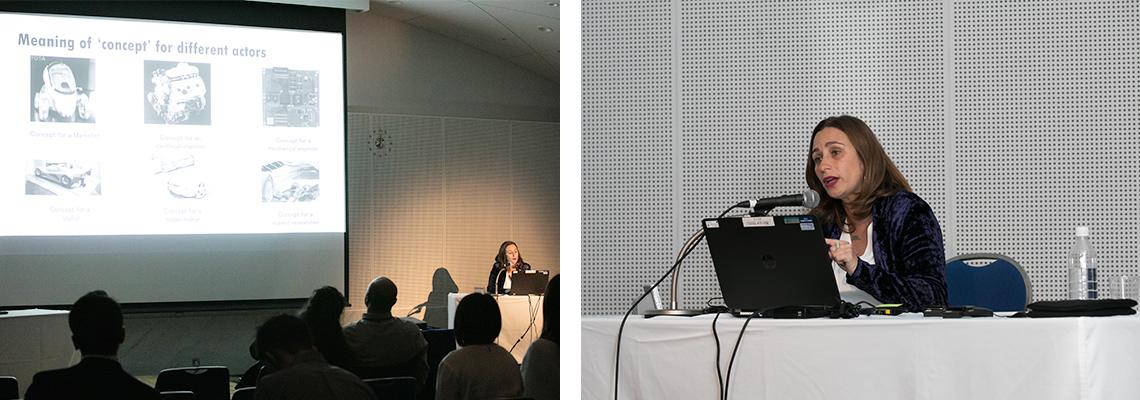Helena Gentili moved to Italy and received her master’s degree in lighting design from a university in Milan after earning an architectural certification in Brazil. During her studies, she worked on projects in Belgium and Switzerland, and currently, she is the director of lighting projects at IvoryEdge i n India. A seminar was given from the perspective nurtured from her cross-cultural experience on the influence of cultural backgrounds of each country on lighting design, with the most recent case study in India.

At the beginning of the seminar, Ms. Gentili questioned, “What is Collaborative Design?” According to the dictionary, the word “collaborate” in English is a relatively new word first used in 1845 and originally has the meaning of “working together,” similar to its synonym “operate” which has an older origin. However, in a multicultural environment, a higher level of collaboration is required, such as “sharing goals,” “enhancing motivation,” and “compromising” in addition to the meaning of simply “working together.”
She thinks that the cultural background is one of the reasons why collaboration in this sense is required in the field of lighting design. For example, people in Italy in southern Europe would picture natural light to be bright, casting a heavy shadow in the summer, while in Belgium in northern Europe, natural light is considered to be soft, casting a long shadow in winter. Given the fact that there is a difference in perception within Europe alone, the difference is more remarkable in geographically remote areas, for example, in India. Therefore, she emphasizes the importance of collaboration to overcome such differences in lighting design projects.

In the HMG Stone Gallery project where she designed lighting in India, an Italian office took charge for architectural and interior design, a German company was responsible for the lighting control system, and Indian designers and Ms. Gentili who is Brazilian was in charge of coordination and on-site supervision in India.

Along with tips like all parties must have a shared purpose, and all information such as fixture specifications must be kept in a record, the lesson learned from this project was that it is necessary to “accept the limits” at times in areas such as quality control, especially in developing countries.That teaches us the aspect of working in “collaboration” in a multicultural environment beyond the original meaning of merely “working together.”
【Date & Time】11:15‒12:15, March 7, 2019
【Venue】Room 101, 1F, Conference Tower, Tokyo Big Sight
【Speaker】Helena Gentili, Director, Ivoryedge
【Organizers】IALD Japan, JLMA, Nikkei Inc.
Profile

Helena Gentili
Helena Gentili is an Italian/Brazilian independent lighting designer who works as a lighting consultant in Italy and abroad. Her experience in the field of lighting design involves the private and public sector, as well as contemporary lighting art contexts. At the moment, she is the Director Lighting Designer for Ivoryedge IoT Solutions Provider, in Bangalore (IND) where coordinates and develops several lighting design projects integrated with automatons solutions based on Internet of things for different fields of application such as residential and hospitality, cultural heritage sites, urban lighting and commercial spaces. She has an architectural and urbanism background studies with a Master degree in Lighting Design and a Doctorate in Architectural and Urban Design with the aim to further study the role of artificial lighting in the contemporary nocturnal landscape. For the past few years, she is an adjunct professor at the Master in Lighting Design & Led Technology from Politecnico di Milano and has been invited as a lecturer at international and national seminars and workshops. Since 2014, she is a professional member of APIL (Italy).





